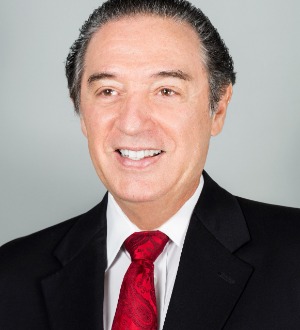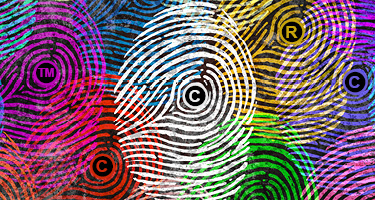A trademark is a word, name, or symbol used to identify and distinguish a seller’s product from those of others. A trademark is part of a company’s brand. It is the embodiment of the company’s reputation. Over time, a trademark can accumulate significant goodwill. Consider the value of top brand names, such as Apple, Google, and McDonalds. Apple’s brand recently became the first to surpass a $200 billion valuation on Forbes’s annual list of Most Valuable Brands. Based on the valuation, Apple’s brand accounts for greater than 20% of Apple’s current market cap.
Trademark rights arise automatically when a seller uses a mark in commerce (i.e., in connection with the sale of goods or services). Subject to certain requirements, such automatic rights grant the trademark owner the right to exclude others from adopting and using the mark in the owner’s geographic area.
But if these rights arise automatically, why would anyone consider undertaking additional steps—and expense—to register a trademark with the United States Patent & Trademark Office?
The answer is simple: Registration greatly enhances the value of the company’s brand. A trademark owner enjoys significantly greater rights and protections for a registered mark than for an unregistered mark.
There are several ways registration provides increased protection and enhances the value of a company’s brand:
Nationwide Priority
Perhaps the most valuable benefit of registering a trademark is the accompanying nationwide priority. The owner of an unregistered trademark can preclude use of the mark by others in its limited geographic area, but the owner of a registered trademark can preclude use of the mark by others across the entire United States. This is particularly important in the age of the internet, where online traffic might encounter various companies with similar names. This benefit is also vital for a company that hopes to expand in the future. Exclusive rights to a brand name across the entire country is far more valuable than exclusive rights limited to a particular geographic area.
Registration Significantly Reduces Enforcement Costs
Public Record of Ownership, Constructive Notice, and Legal Presumptions
The United States Patent and Trademark Office (the “USPTO”) maintains a public database of certificates of registration, making it a matter of public record that the registrant owns the subject trademark. This record provides notice to the public that the registrant owns and has exclusive right to use the mark, whether or not an accused infringer has actual knowledge of those facts. This “constructive notice” eliminates the defense of good-faith adoption and use by the accused infringer. And the public record discourages others from adopting a similar mark.
Moreover, the owner of a registered trademark is entitled to a number of presumptions in court that make enforcing its rights significantly less expensive. Under the Lanham Act, a certificate of registration is prima facie evidence of the validity of the mark, the registrant’s ownership of the mark, and the registrant’s exclusive right to use the mark. This means the accused infringer will have the burden of proving to the contrary if it desires to challenge any of these points. The owner of an unregistered mark retains the burden of proving these points if challenged. This can be a costly proposition.
Courts have extended the presumption for registered marks to include prima facie evidence of continual use of the mark from the filing date, that the mark is not confusingly similar to other registered marks, that the mark is inherently distinctive or has acquired distinctiveness through long-term use, that the mark was used in interstate commerce prior to registration, that the mark is not a generic name, and that the mark is not invalid as a functional design. In the event a trademark owner enforces its rights in court, these presumptions can save the owner a significant amount of money in avoiding the expense of litigating these points.
Incontestable Status After Five Years of Registration
After five additional years of continuous and exclusive use (after registration), a registered trademark can become “incontestable,” which means certain aspects of the trademark cannot be challenged. The registrant must file a sworn statement at the appropriate time to achieve incontestable status, which, in effect, creates a “super trademark.” Under the Lanham Act, when a mark becomes incontestable, the registration certificate becomes conclusive evidence (rather than mere prima facie evidence) of the validity of the mark, the registrant’s ownership of the mark, and the registrant’s exclusive right to use the mark. In other words, the registrant will prevail in court on these points, which cannot be rebutted by contrary evidence.
Moreover, anyone who might challenge the owner’s rights (e.g., an accused infringer) is greatly restricted in its ability to do so. For example, an incontestable mark may not be challenged on grounds it is merely descriptive of the goods or services offered for sale thereunder. The benefit of an incontestable mark can save significant litigation expenses in the event a trademark owner is forced to file an infringement lawsuit. Not only does incontestability help with expenses in court, but it also provides a strong deterrent to those considering adopting a similar mark or those desiring to continue using a similar mark after receipt of a cease-and-desist letter. The owner of an incontestable mark is often able to convince an accused infringer to back down before a lawsuit is even necessary.
The USPTO Will Police Registration of Confusingly Similar Marks
Unlike the United States Copyright Office, which will issue copyright registrations as a matter of course, the USPTO evaluates trademark applications for similarity with other marks. The USPTO will refuse registration if it determines a trademark applicant seeks to register a mark that is confusingly similar to another registered mark. This provides an additional layer of protection for owners of registered trademarks.
Right to Use the ® Symbol
Once a trademark is registered, the owner may begin marketing its products under the mark using the ® symbol. This symbol notifies the public that the mark is registered with the USPTO and that its owner enjoys all the accompanying benefits of registration. The symbol can give the mark greater credibility and notify would-be infringers that the owner takes its intellectual property rights seriously. This can generate a greater deterrent to infringing conduct.
Enhanced Damages Against Counterfeiters
When a trademark is registered, the trademark owner becomes eligible for enhanced damages against counterfeiters. The Lanham Act provides for statutory damages against counterfeiters as well as treble damages and attorney fees for willful counterfeiting. As damages can sometimes be difficult to prove (particularly when the accused counterfeiter is willing to lie and falsify information), such statutory damages can provide an avenue of redress where it might be difficult and/or prohibitively expensive to prove damages. Moreover, registration further deters counterfeiters by providing for recovery of treble damages and attorney fees where the counterfeit sales are deemed willful.
Protection Against Cybersquatters
Domain name registrars (such as GoDaddy) have adopted the Uniform Dispute Resolution Policy (“UDRP”), an informal dispute resolution mechanism for challenging the ownership of a particular domain name without the full undertaking of a lawsuit. For a successful challenge of a domain name under the UDRP, the claimant must prove it has rights in the claimed trademark and that the domain registrant obtained the domain in bad faith. Without a registered trademark, it is extremely difficult, if not impossible, to prove rights in the mark and bad-faith registration of the domain.
Registration also permits the trademark owner to participate in the Trademark Clearinghouse, a centralized repository of data on trademarks that are registered, court-validated, and/or protected by statute or treaty. The database provides information about trademarks to domain registries and registrars. It allows a trademark owner to apply for its mark in connection with a new generic top level domain (gTLD). For example, the owner of the registered trademark ACME would have first claim to the domain name ACME.law during the gTLD’s sunrise period, i.e., before the domain name is available to the public. Through the Trademark Clearinghouse, the owner of a trademark registration can also opt to receive notice if someone tries to obtain a domain name containing the mark with a new gTLD.
Protection Against Importation of Infringing Product
The owner of a registered trademark for physical goods may apply to record its mark with U.S. Customs and Border Protection, which will monitor, seize, and detain imported goods that infringe the owner’s rights. Registration is required to participate in this program.
Use in Online Sales Platforms
Certain online sales platforms offer a mechanism that allows brand owners to control and police products sold under the owner’s mark across the platform. For example, a trademark owner may apply to participate in the Amazon Brand Registry, which allows the owner to control the brand and more easily find infringers. It also provides access to brand analytics on the platform. Such programs generally require the mark be registered to qualify for participation.
Basis for Registration of the Trademark in Other Countries
The United States is a party to the Madrid Protocol, which allows trademark owners in one country to extend their trademark rights to other countries that are parties to the Protocol. A trademark owner must have applied for registration to make use of the Madrid Protocol.
Conclusion
Business owners spend a great deal of time, money, and effort building their company and its reputation in the marketplace. Protecting that reputation is of paramount importance to survival and future success.
In a world where risk is ever-present and inescapable, registering a trademark is a simple process that can significantly reduce risk and drive value. Registration provides nationwide priority over all others who might seek to adopt the registered mark. Registration significantly reduces the costs of enforcing trademark rights. Registration provides for enhanced protection against counterfeiters, cybersquatters, and importers of infringing product. And registration provides various other advantages, including qualifying the trademark owner for participation in programs available in online sales programs and as a basis for registration of the trademark in other countries.
With so many benefits, trademark registration is undoubtedly one of the most important steps a business should take to protect its brand.







































